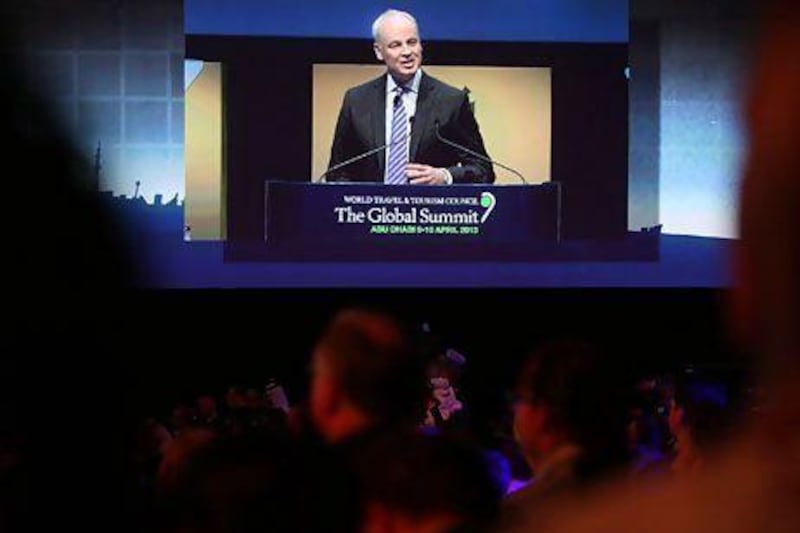Asian tourists will drive an explosion in global travel with the industry projected to be worth US$10.5 trillion (Dh38.56tn) in the next decade, outpacing growth in the wider economy.
The travel and tourism industry was worth $6.6tn last year, representing 9 per cent of global GDP and employing one in 11 people, according to the World Travel and Tourism Council (WTTC), which is holding its annual summit in Abu Dhabi. But by 2023, the body expects the sector to account for 10 per cent of global GDP, and employ one in 10 people.
Last year, the number of positions in the industry increased by 5 million to 260 million, accounting for one in 11 jobs globally. The total economic impact of the industry rose by 3 per cent in the period, faster than many other sectors.
"WTTC's latest annual research shows that the travel and tourism industry outperformed the global economy in 2012, growing faster than manufacturing, retail, financial services and communications," said David Scowsill, the president and chief executive of the WTTC. "Over the next 10 years, travel and tourism GDP is set to grow by 4.4 per cent on average per year, outpacing growth in the wider economy and other industries, notably retail and public services."
Total employment in the sector is forecast to rise by more than 70 million jobs over the next decade, with two thirds of those additional jobs in Asia.
"Over the next 10 years we will see significant movement in terms of travel and tourism GDP, from the mature to the newly emerged and emerging markets," said Mr Scowsill. "Asia will continue to lead growth of the global travel and tourism industry over the next decade, with annual average growth of more than 6 per cent, driven by increasing wealth among its middle classes."
By 2023, the WTTC thinks China will overtake the United States as the world's largest travel and tourism economy, measured in terms of total GDP and the size of the outbound market, which is why countries, including the UAE are stepping up efforts to attract Chinese tourists.But some warned of tough times ahead, saying the travel industry is facing rapid economic changes that will force businesses to adapt or face extinction.
"Some companies that are in this room will not exist in the future," Daniel Stelter, the managing director of Boston Consulting Group, told delegates.
"In the past, you would go to a travel agency and buy an entire package for your itinerary. Today, you go online on Google, arrange your trip. I'm not saying tour operators won't exist in the future, but they will have to change significantly."
Europe's debt crisis, and the subsequent slowdown of euro-zone economies, will have an impact on the industry. "What has happened in Cyprus is just the beginning of what we will see in the rest of Europe."
The Arab Spring uprisings cost the Middle East region, as more Europeans opt to travel within their continent amid energy scarcity, price evolution and risk and security changes, Mr Stelter said.
Airlines were forced to suspend routes for extended periods in the past two years, when uprisings toppled leaders in Egypt, Tunisia, Libya and Yemen. The carriers had been greeted with lacklustre demand since kick-starting their operations, as a surge in violence and crime left more seats aboard carriers empty.
"We will have to adjust to reality that cheap oil will never be a fact in the future again," Mr Stelter said.
[ halsayegh@thenational.ae ]






